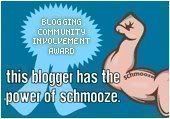On this day in history
On July 22, 1862, Abraham Lincoln revealed to his cabinet (represented in the painting above) that he was considering a radical idea. The Civil War was waging, the Rebels from the South, bent on destroying the Union, were winning strategic battles and the North, determined to maintain the United States, was losing confidence.
I'm currently reading Team of Rivals by Doris Kearns Goodwin. It is an exhaustive biography of Lincoln as well as the men who ran against him for the Republican nomination. And how Lincoln included nearly all of them into his administration, often in key leadership positions that could have undermined him.
What Lincoln unveiled to his cabinet on July 22nd is the Emancipation Proclamation, the document that declared free any slaves residing in states that didn't rejoin the Union by January 1, 1863. I'm not going to do justice to the document or the dynamics leading up to it or the fall-out since I haven't gotten to that part of the book.
But several points up to now have floored me. Kearns Goodwin, through multiple primary sources including letters and diaries from those involved, shows how part of the motivation for declaring the slaves free was for their labor. Up to that point they had been laboring, as slaves, for the Southern forces, allowing the white male soldiers to either not have to dig trenches or prepare the battle sites or allowing the white male soldiers to know that crops were being tended by slaves back at home. Lincoln and others decided to declare all slaves free so that they in turn could do the same work for the Union forces, for pay.
I find this ironic.
The second point is how caught up many whites were, including leading abolitionists, that once the slaves were freed that they should be moved en mass to another country (either in Latin America or Africa) since there was supposedly no way whites and blacks could live together as equals. Lincoln went so far as to host a group of freed blacks in the White House, the first time such a meeting had ever occurred in the building, to discuss the idea. That group actually left the meeting promising to promote the idea to black leaders in various cities. Once out of the White House the idea was resoundingly denounced by those very same black leaders. Why would they leave the only country they knew? They were Americans by birthright.
Kearns Goodwin alludes to the evolution of Lincoln's thoughts about this but, again, I'm not far along to know how it concludes.
None of this diminishes my admiration and awe of Abraham Lincoln. He was truly brilliant and while long, Kearns Goodwin's biography has these moments of suspense and drama that truly make it impossible to put down. I for one plan to honor Presidents' Day with a bit more reverence next year. It isn't just a holiday to get a deal on a car or an appliance. It is a day to honor and reflect on how fortunate the United States of America was to have Abraham Lincoln as our President during some of our countries darkest years.
I'm currently reading Team of Rivals by Doris Kearns Goodwin. It is an exhaustive biography of Lincoln as well as the men who ran against him for the Republican nomination. And how Lincoln included nearly all of them into his administration, often in key leadership positions that could have undermined him.
What Lincoln unveiled to his cabinet on July 22nd is the Emancipation Proclamation, the document that declared free any slaves residing in states that didn't rejoin the Union by January 1, 1863. I'm not going to do justice to the document or the dynamics leading up to it or the fall-out since I haven't gotten to that part of the book.
But several points up to now have floored me. Kearns Goodwin, through multiple primary sources including letters and diaries from those involved, shows how part of the motivation for declaring the slaves free was for their labor. Up to that point they had been laboring, as slaves, for the Southern forces, allowing the white male soldiers to either not have to dig trenches or prepare the battle sites or allowing the white male soldiers to know that crops were being tended by slaves back at home. Lincoln and others decided to declare all slaves free so that they in turn could do the same work for the Union forces, for pay.
I find this ironic.
The second point is how caught up many whites were, including leading abolitionists, that once the slaves were freed that they should be moved en mass to another country (either in Latin America or Africa) since there was supposedly no way whites and blacks could live together as equals. Lincoln went so far as to host a group of freed blacks in the White House, the first time such a meeting had ever occurred in the building, to discuss the idea. That group actually left the meeting promising to promote the idea to black leaders in various cities. Once out of the White House the idea was resoundingly denounced by those very same black leaders. Why would they leave the only country they knew? They were Americans by birthright.
Kearns Goodwin alludes to the evolution of Lincoln's thoughts about this but, again, I'm not far along to know how it concludes.
None of this diminishes my admiration and awe of Abraham Lincoln. He was truly brilliant and while long, Kearns Goodwin's biography has these moments of suspense and drama that truly make it impossible to put down. I for one plan to honor Presidents' Day with a bit more reverence next year. It isn't just a holiday to get a deal on a car or an appliance. It is a day to honor and reflect on how fortunate the United States of America was to have Abraham Lincoln as our President during some of our countries darkest years.




















8 comments:
You KNOW how much we love Abey Baby at our house! The kids and I were actually talking about him in the car this morning. (Duhbya's failings by comparison may also have been mentioned.)
He was courageous, but still a political animal. The Emancipation Proclamation was never about "doing the right thing". That doesn't make it any less noteworthy, however. We've often created strong ideas for less than honorable reasons.
Every president has been dishonorable in some repect during their life or term in office. So be it.... they are human. I agree, I admire ole Abe. (((HUGS)))
Interesting... when you dig deep in history there always seems to be a lot of alterior motives that were "forgotten". It's all about politics. Rarely do things seem to be done for the sake of "goodness".
Huh. That's interesting stuff. Not a book I'd pick up to read, but sounds interesting. I limit myself too much on my reading choices.
Sounds like a fantastic book. And Lincoln? Well, it is my humble opinion that often greatness isn't perfection. He did the best he could do with the knowledge and understanding he had-- which far exceeded that of those around him. It resulted in greatness, flawed though he may have been. For that we owe him all respect and gratitude. Who of us could have done better?
Economic warfare has many faces, doesn't it?
Lincoln remains in the top five Presidents, in my opinion.
Goodwin is a bit of a hack historian to tell you the truth. If you want to read a great history of the Civil War, read James McPhearson's "Battle Cry Freedom". In 1861, the North had a policy of returning slaves. There were some generals who countered this policy. One was General Butler. He believed that taking in slaves as "contraband" directly countered the South's war effort. Many Unionist Northern Generals were appalled at such actions as they felt the war wasn't about slavery. Lincoln was against using slaves as contraband, however, his position would change in 1862. After some early Union success out West (with the help of US Grant), the North were struggling by the summer of 1862. By the late summer of 1862, the South was now on the counterattack after beating back two Union armies in Virginia and also with its planned invasion of Kentucky. Soon, Lee was on the march into the border state of Maryland and Bragg was on the march into the border state of Kentucky. The North was in a panic and Britain and France were on the cusp of recognizing the Confederacy. Lincoln had previously come to the realization that this must be a war against slavery if only because it would drive a knife into the heart of the South's economic engine. Lincoln gave up on appeasing Unionists who didn't want to make the war about slavery. For Lincolon the "gloves had come off". The Emancipation Proclomation was almost issued by Lincoln in the summer of 1862. He decided to hold off until he had enough of a victory. Lee's defeat at Sharspburg (even though Lee escaped across the Potomac to fight another 2 1/2 years) was the victory Lincoln was looking for. The war would now be about slavery. Lincoln was pragmatic about this as he wanted to defeat the South first and foremost. For Lincoln, defeating slavery was the easiest way to crush the Confederacy.
Post a Comment